If you have read the name Leslie Botts in a newspaper or online recently, you already know that she is “Austin’s oldest lifeguard.” Before she achieved local fame, however, she was improving the lives of students here at McCallum first as a special education and later as a substitute teacher.
From 2000 to 2007, Botts worked at McCallum teaching special education students. When she first arrived at McCallum, she says she was told not to bother trying to teach her students to read. Botts was determined, however, and as a class they read a book about Gordon Parks, a famous African-American photographer.
“When we got through with the book,” Botts said, “I had many students tell me that it was their first time reading a book cover to cover. It practically drew me to tears because I love reading. I think being able to read is the doorway to so many things.”
After that success, Botts was on a mission.
“I was determined to get them to read on their own,” Botts said. “And they did. I think their favorite one was Of Mice And Men by John Steinbeck; they absolutely loved that one. I think they showed everyone they were a lot more capable than everyone thought [they were].”Botts said.
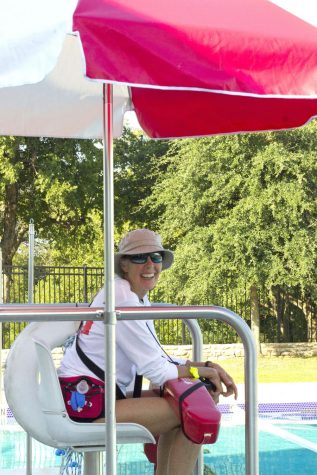
Despite their reading accomplishments in her class, her students still felt as though they weren’t really a part of McCallum.
“I think they felt really disconnected,” Botts said.
She said her students felt left out of a lot of school institutions, including the school newspaper, The Shield.
“They told me this, and I immediately challenged them to start their own newspaper,” Botts said. “To my surprise, they jumped right on it.”
Botts’ students decided to call their new publication True Image because they felt they were misunderstood as individuals and as a group.
“And so they spent more than six weeks on this paper,” Botts said. “Once it was finished, we all came together in class and put the paper together.”
Botts describes all of her students standing in her room, picking through the pages and looking for their articles as one of her most vivid, powerful memories from her teaching career.
“I have never seen such pride on students’ faces,” she said. “It was one of those moments as a teacher where you step back and just say to yourself, ‘This is worth all of the blood, sweat and tears that it took us to get here.’ When the paper came out, we got a lot of positive feedback from the custodial staff and the people who work in the cafeteria, but we did get some negative feedback from other teachers and stuff like that, but honestly at that point in my career, the students’ needs were above mine. If I got in trouble for it, so be it. It was the students who came first. That whole experience was one of the high points in 30 years of teaching.”
Although she retired in May of 2007, Botts by no means settled down. Shortly after, she moved to St. Johns in the U.S. Virgin Islands. Botts worked as an activities director for an eco-resort and on her off-days taught yoga.
“I lived in a little screened hut on stilts,” Botts said. “I wanted for nothing; my life was very simple. It was a dream come true.”
When Botts returned to Austin, she picked up a couple of hobbies, including painting, photography and, of course, swimming. These pastimes, along with continuing her work as a private yoga instructor, kept her busy until she discovered lifeguarding this past year.
Being a lover of swimming and of water for decades, Botts said that lifeguarding just seemed like the natural next move for her. Because of her time spent swimming at the same pools every day for years, she became very close with a few of the guards at Deep Eddy Pool and Barton Springs.
“I’ve never met a lifeguard I didn’t like,” she said. “When the city really started recruiting and saying that they didn’t have enough lifeguards, I started to think about it, and I said to myself, ‘Well, heck, I can do this.’”
And so she did.
“Eventually the word got out that I wanted to be a lifeguard,” she said. “When I would go to Barton Springs, the lifeguards would tell me, ‘In order to do this, you really need to practice.’”
Because Botts was so close with the guards at Barton Springs, some of them agreed to meet her at a pool on their own time and help her practice her lifeguarding skills.
“At times, I would say ‘I just can’t do this,’ because it wore me out,” Botts said. “People don’t get it because they aren’t 70; it takes a lot of effort.”
Botts remembers the training to be a lifeguard being difficult. Lifeguards for the City of Austin must complete a rigorous 40-hour training course covering all of the necessary Red Cross skills, as well as demonstrating the ability to swim 300 meters, tread water without hands for two minutes and retrieve a brick from the bottom of a 10-foot diving well.
“I can’t tell you how many times I thought ‘Oh God, what was I thinking,’ but it’s this thing in me … this tenacity that makes me want to just push through,” Botts said. “It was my tenacity, and really it was having a number of very supportive people in the lifeguard community.”
When Botts became a lifeguard, there was a period of time when there were several articles written about her by high profile news outlets such as The Washington Post.
“I’m really a fairly quiet, somewhat shy person,” Botts said, “so all of this attention was a lot to handle. When it came out to the public, everywhere I would go people would go, ‘Oh! You’re the lifeguard!’ Mostly it was fun, but sometimes I felt like I had an image I had to uphold, which I didn’t want. I just wanted to be, as much as a 70-year-old could be, part of the group.”
Botts also found the constant testing of her lifeguarding skills to be challenging.
“I’ve never been in a job before where you are constantly being, in a sense, tested on your skills,” she said. “When I’m sitting up in that chair, I’m not thinking about anything else. I’m thinking about what sort of rescue I would perform, or what sort of jump I would do. My mind isn’t anywhere else. So, contrary to what a lot of people ask me, lifeguarding isn’t easy; you have to constantly be focused.”
Despite her passion for lifeguarding, Botts doesn’t have any plans to move to a higher position such as head lifeguard or manager.
“In the beginning I had a number of guards ask me if I wanted to move up at all,” she said, “and my answer is always the same: ‘Nope’. At this point in my life, I’ve had my career; I’ve done all that. I just enjoy guarding and enjoy being with the people at the pool, I’m satisfied with that.”


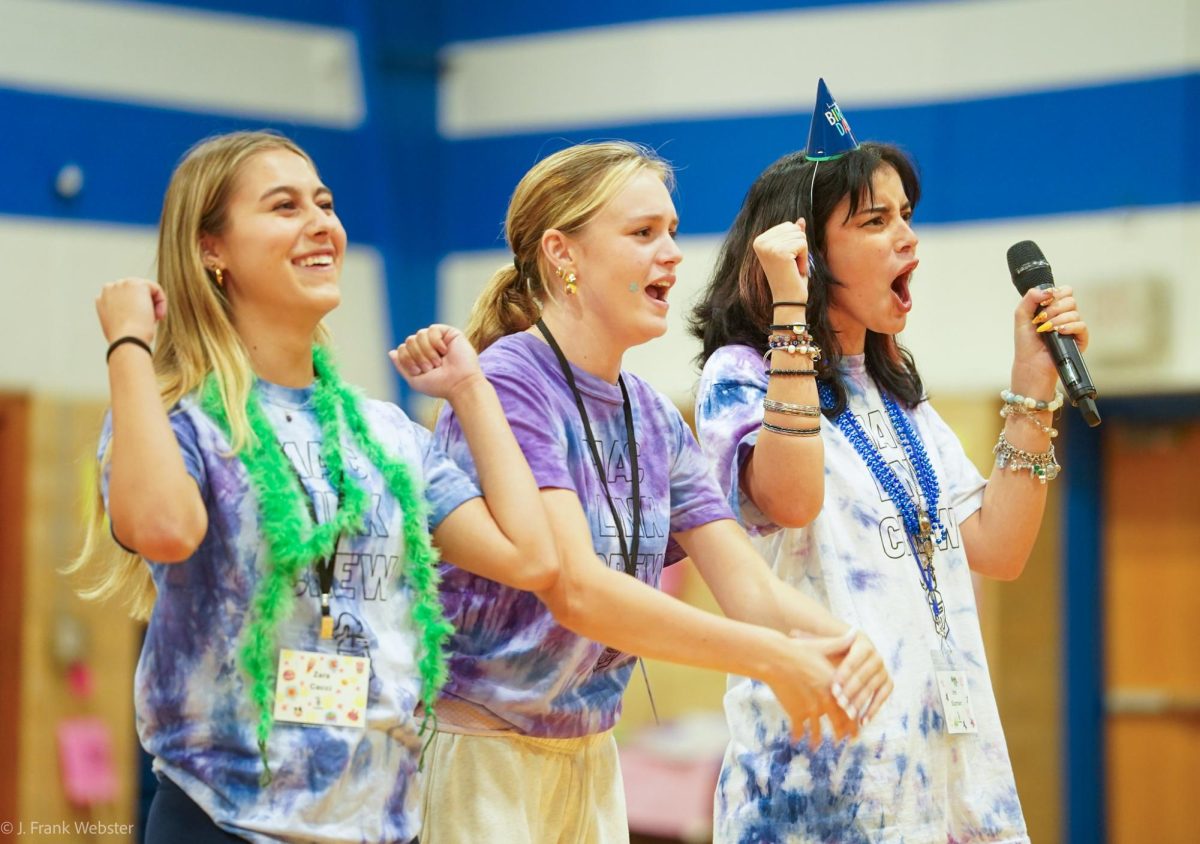
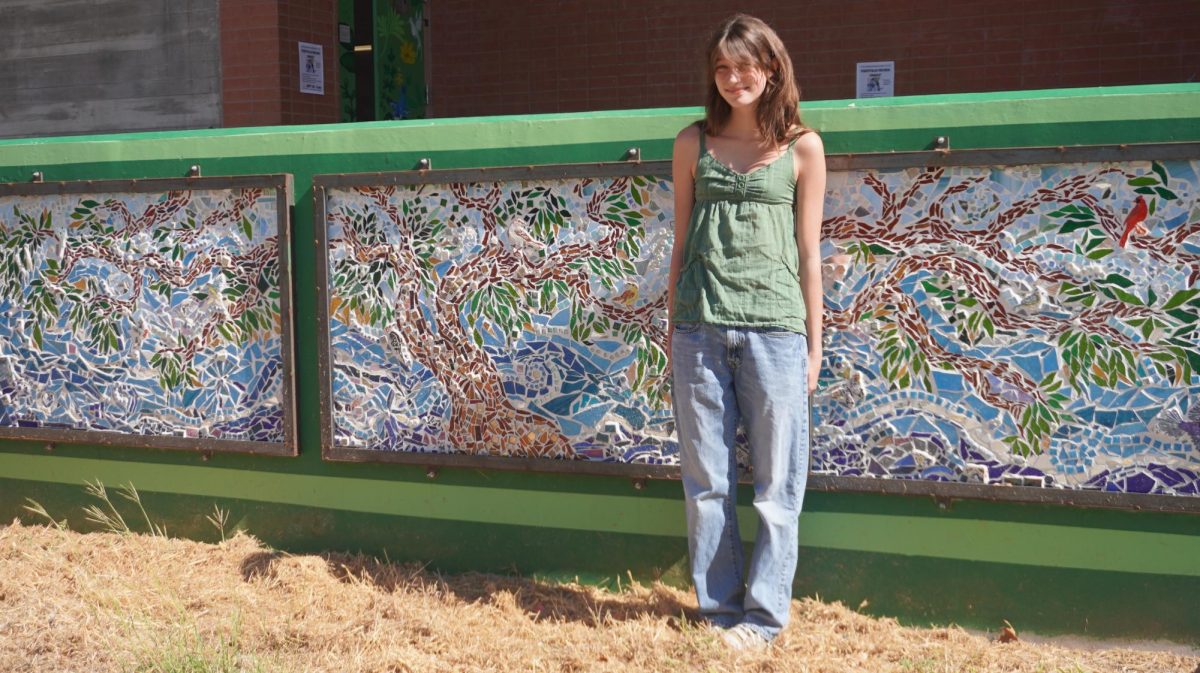

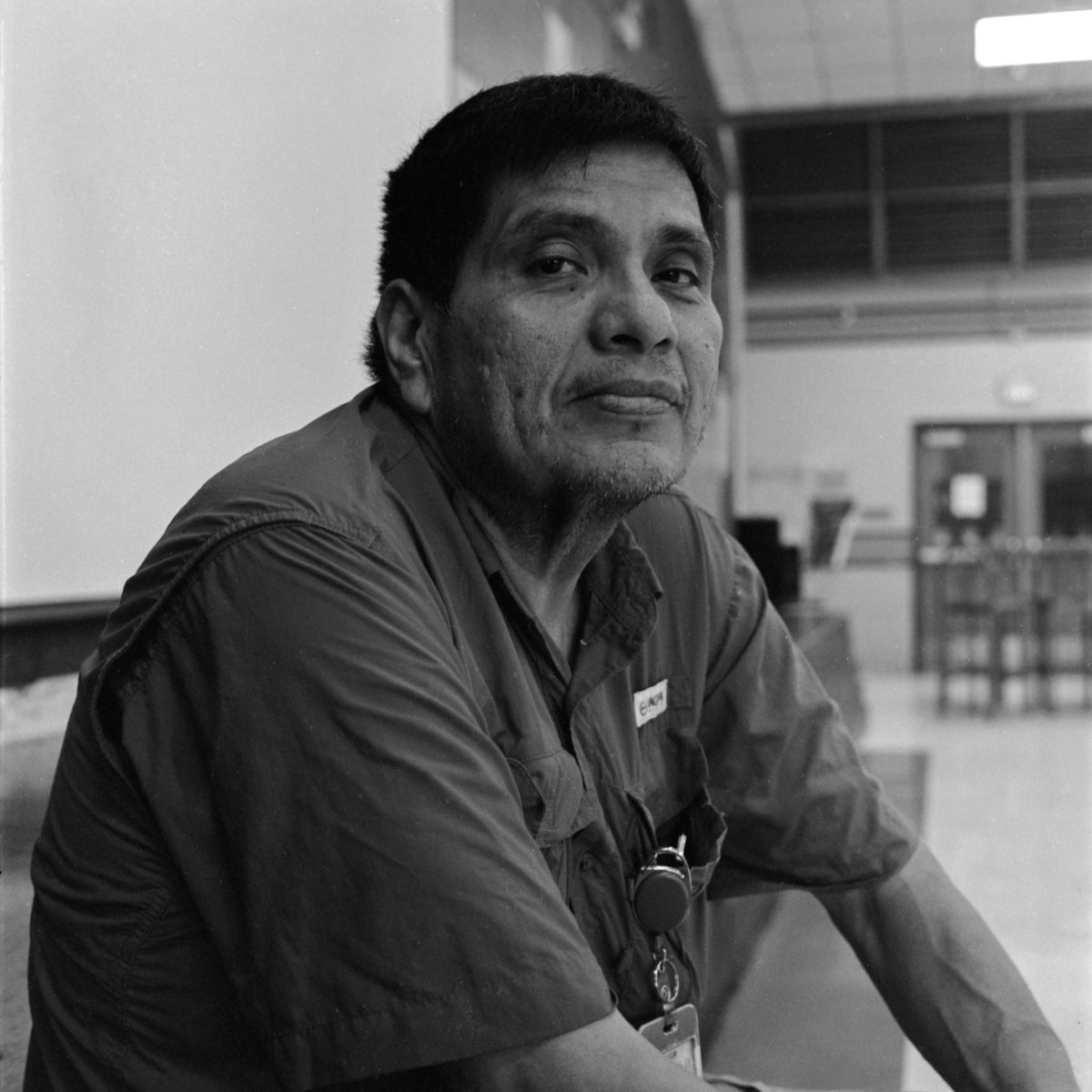
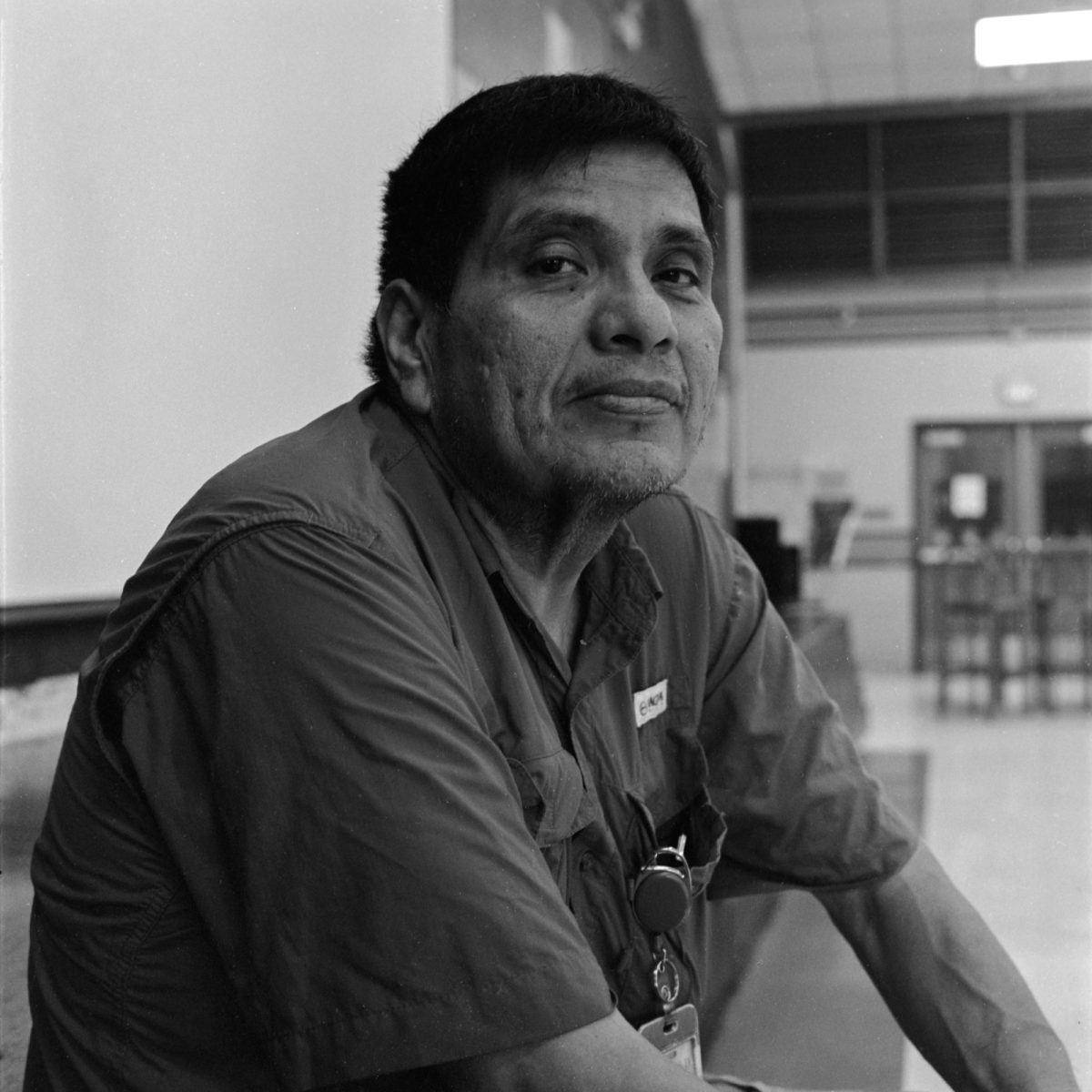
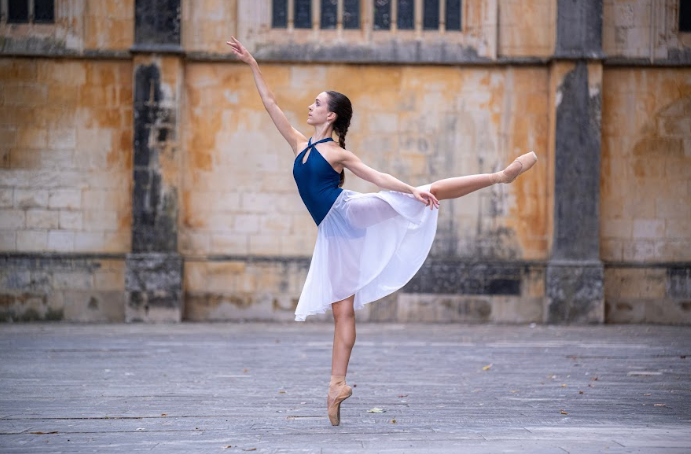
Izzy Wolf • Nov 8, 2018 at 10:00 am
This story for me was quite powerful. I feel my mom has a connection to Botts, although my mom is not a life guard, past her 50’s, or lived in the U.S. Virgin Islands, both my mother and Botts have a passion for reading, traveling, and swimming. I have a feeling my mother will be just as successful as Leslie in the future. My favorite story by far!